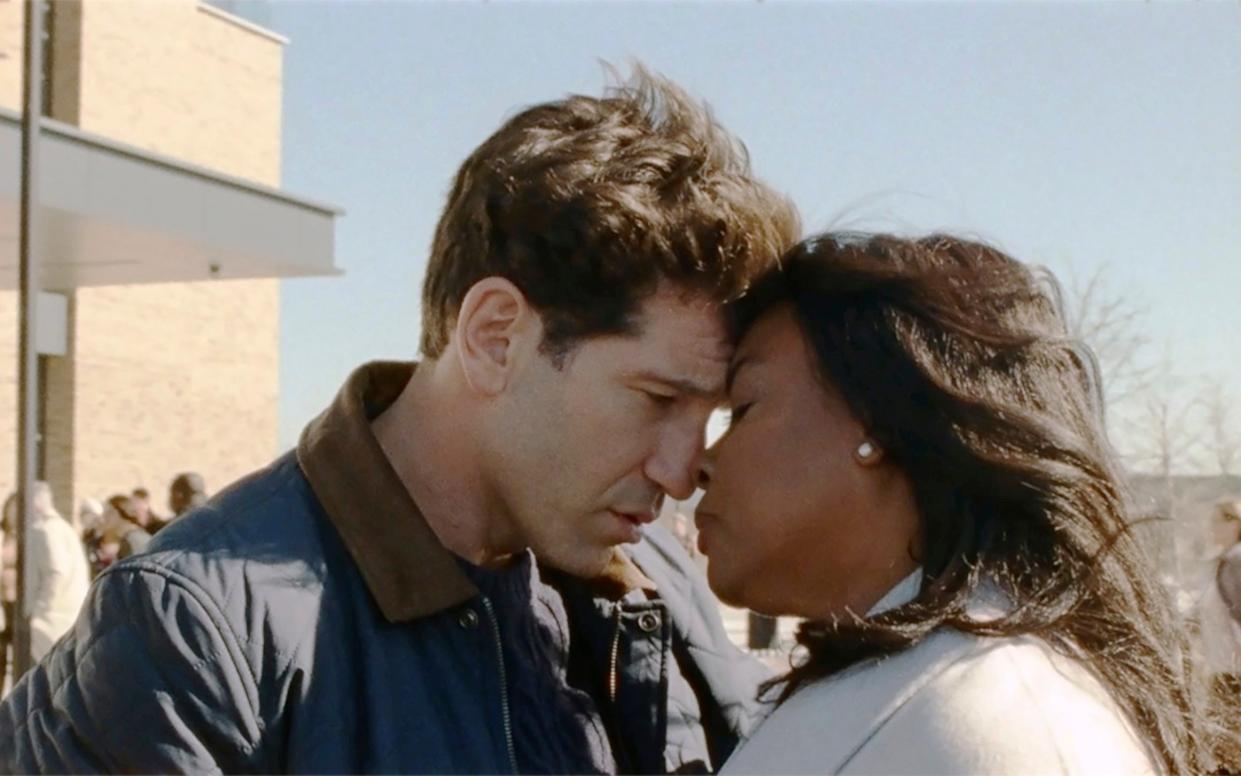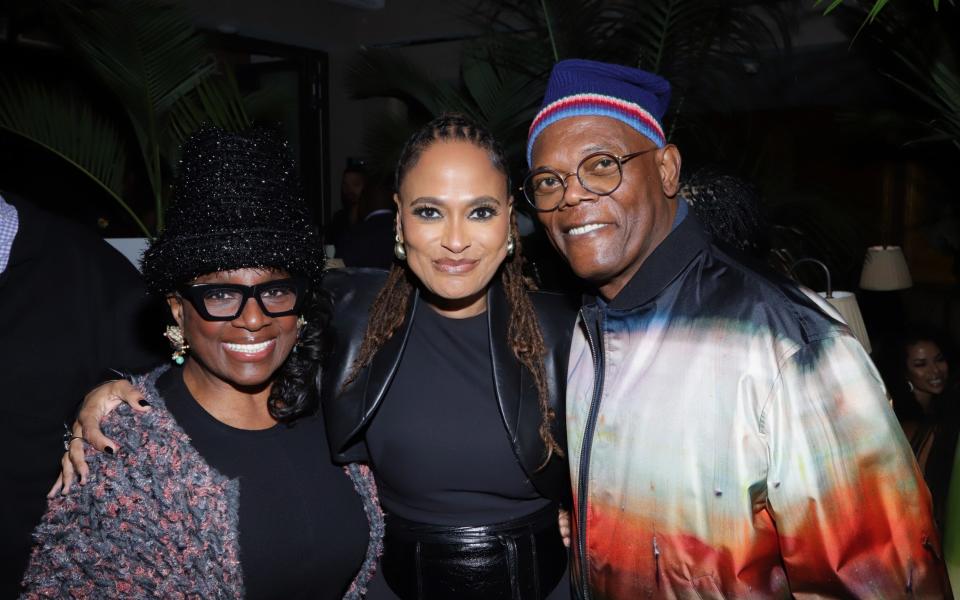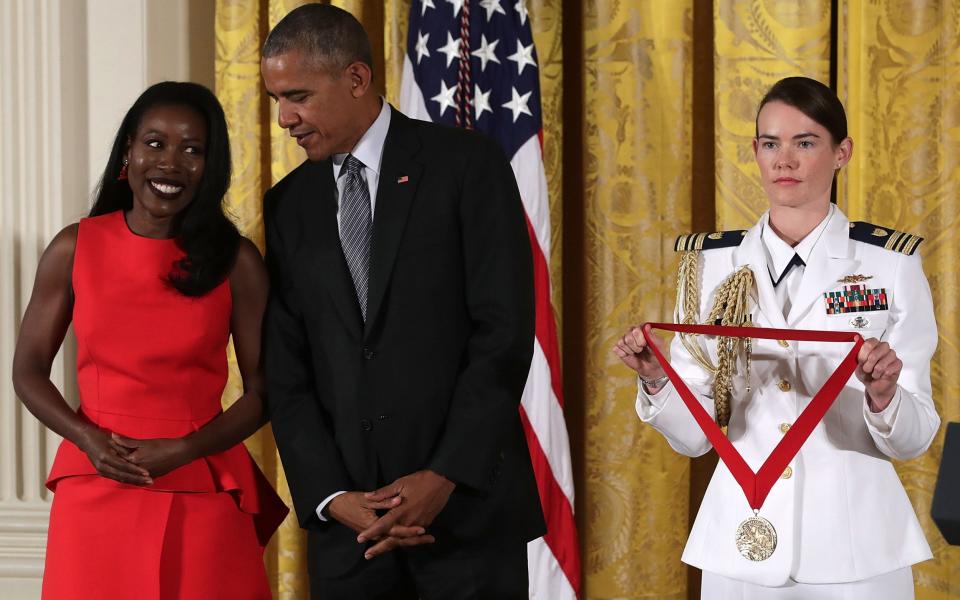Why liberal Hollywood wants this polarising racism drama to win an Oscar

George Bernard Shaw once said that England and America are two nations divided by a common language. They may be about to be split by a common film too.
Origin, the new feature from Ava DuVernay, opens across the United States today after an Academy Award-qualifying run in New York and Los Angeles in December, but not in the UK until early next month. If you think that sounds late for an awards contender, you would be right – but then over here, Origin isn’t one of those at all. It isn’t among the 69 films eligible for the coming Baftas after that body’s initial round of pre-Christmas whittling. Nor is it one of the 45 titles in contention at the London Critics’ Circle ceremony next month.
On the far side of the Atlantic, however, Origin is becoming an Oscars cause célèbre. Although DuVernay recently bemoaned the film’s absence from the awards conversation, a last-minute push is very much underway. Its supporters include Angelina Jolie and Ben Affleck, both of whom have hosted screenings for Academy members: the former even threw a party at her home to muster support, with DuVernay and the film’s lead actress, Aunjanue Ellis-Taylor, in attendance.
A further slew of filmmakers, from Star Wars’ JJ Abrams to Bond producer Barbara Broccoli, have praised the film on social media: last week, the singer and former Best Actress winner Cher tweeted “ORIGIN”, then two line breaks, then a few spaces, then “BRAVO”. More momentously still, it is also being championed by Frances Fisher, the Titanic actress who helped secure Andrea Riseborough a surprise Best Actress nomination last year with a dogged (and sometimes dubious) grassroots campaign. Will this year’s drive prove equally successful? We’ll find out next Tuesday, with the announcement of this year’s nominees.
To understand why Origin is so polarising, you have to first grasp what it is, which isn’t especially straightforward. It’s about the 2020 book Caste: The Origins of Our Discontents by the journalist Isabel Wilkerson. But it is not an adaptation of the book, which is a nonfiction work about the social underpinnings of racism, nor a documentary about the arguments within. Rather, it’s a dramatisation of the writing of the book – during which the author was beset by a number of personal tragedies – peppered with re-enactments of some of the historical events she researches and describes.
DuVernay, who as well as directing wrote the screenplay, is a seasoned documentarian (her film about American prisons, 13th, won a Bafta): she also directed the historical drama Selma, about the 1965 voting rights marches led by Martin Luther King. So the film’s hybrid style suits its maker’s busily eclectic output.
The substance is where it comes unstuck. The thesis of Wilkerson’s book is that racism in present-day America is in fact a caste system: a vast, invisible machine that keeps the country ticking over, while ensuring its white populace remain at the top of the heap.
“Like other old houses,” Wilkerson writes, “America has an unseen skeleton, a caste system that is as central to its operation as are the studs and joists that we cannot see in the physical buildings we call home.” Likening America’s treatment of its nonwhite population with Nazi Germany’s persecution of Jews and India’s of the Dalits at the bottom of its own caste-based society, she argues that caste is a recurring feature throughout civilisations – the “subconscious code” on which social order depends.
“ORIGIN”
BRAVO— Cher (@cher) January 13, 2024
When it was published in the US in August 2020, at the end of a summer of protests following the murder of George Floyd, Wilkerson’s book sold over half a million copies in four months. Its claims, while sweeping and contentious, found an audience. To the largely European press at Origin’s Venice Film Festival premiere last September, however, its arguments sounded intuitively…well, a bit off.
Yes, caste and race can be connected. But does that mean all racism is fundamentally a clash of castes? Whatever happened to class-based bitterness writ geographic, or old-fashioned xenophobia – that is, fear and/or hatred of a strange, perhaps invasive other – or just not getting on with the neighbours?

This, surely, is how most British (and, I’d hazard, also mainland European) citizens experience racism, either as wielder or target. (For my part as a Scot, the sometimes furious anti-English sentiment that swirled around my childhood in the 1980s and 1990s had less to do with unseen studs and joists than accents, TV scheduling, and a crushing inferiority complex around football.) But Origin stealthily flatters America by suggesting its own unique derangements around race – rooted in a century of slavery, and coded for more than a century after into state and local law – are merely the latest version of a grim universal mechanism to which many other nations also owe their wealth and status.
Much of Venice was especially perturbed by a section in which Ellis-Taylor’s Isabel travels to Berlin to research the Holocaust – only to conclude that this, too, was a caste system at work. In a scene towards the end of her trip, an academic played by the Danish actress Connie Nielsen gently but firmly suggests over dinner that the respective aims of the Holocaust (extermination) and slavery (subjugation) were materially different enough to make comparisons between the two glib.
At last, many of us thought at this point: here comes the nuance; the vital non-American perspective. But no. From here, we cut to Isabel on the phone to her sister, chortling about this pompous old bat who arrogantly undermined her work.

The very American error both the film and its version of Wilkerson make is to conflate race and skin colour. Because most European Jews are white, Isabel argues, something beyond racism must have driven the Nazis’ genocidal scheme, and the ethnic distinction it supposedly rested on was trivial. (A conversation about how rare black Jews are is conducted with a gasp-inducing flippancy that would have fit nicely on Brass Eye.)
Later, when Isabel visits India, she gets into a similar tangle the film also doesn’t seem to notice, when she argues that country’s caste divisions must exist at a more fundamental level than racism, since everyone involved is Indian. Two points are worth making here: one, yikes, and two, India’s castes sprung up around 1500 BC, when the Indo-Aryans arrived on the scene and promptly subjugated the Dravidian natives.
While the system’s strata have shape-shifted many times since, genetic testing suggests they were initially formed along tribal lines. As in the Holocaust section, though, the film doesn’t push back on Isabel’s presumptions, and we’re simply left to nod along – or not.
You wouldn’t trust the film’s own characters to recognise this, but the gulf in understanding here is cultural, not racial. Many of Origin’s loudest Hollywood boosters are white, while a December screening of the film for young black British critics failed to drum up any more enthusiasm than the UK’s Venice press corps had mustered three months beforehand. For cinema-goers whose brains haven’t been turned to porridge by American discourse, it’s an extraordinary viewing experience – a thoughtful, well-meant, intricate construction built in the shadow of a warehouse-sized blind spot.


